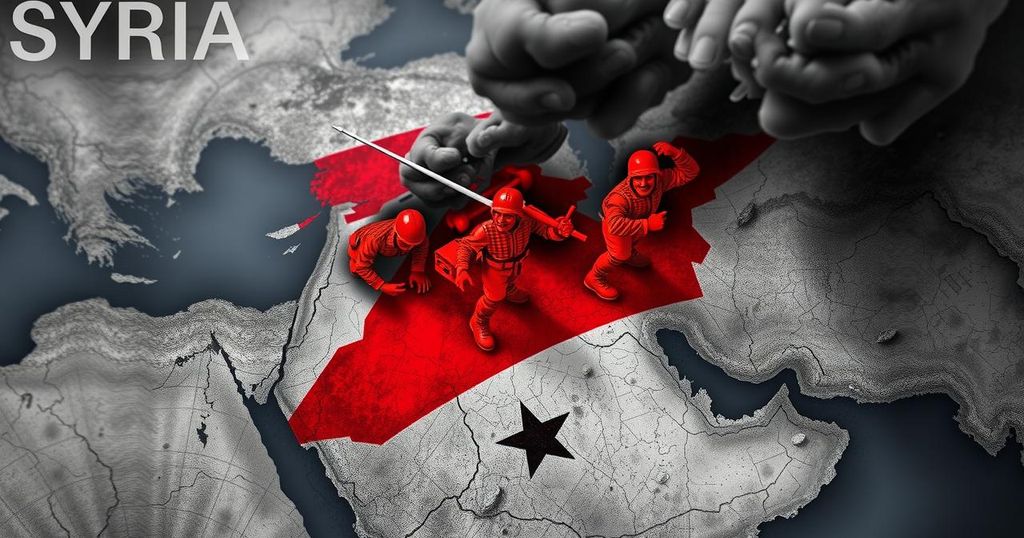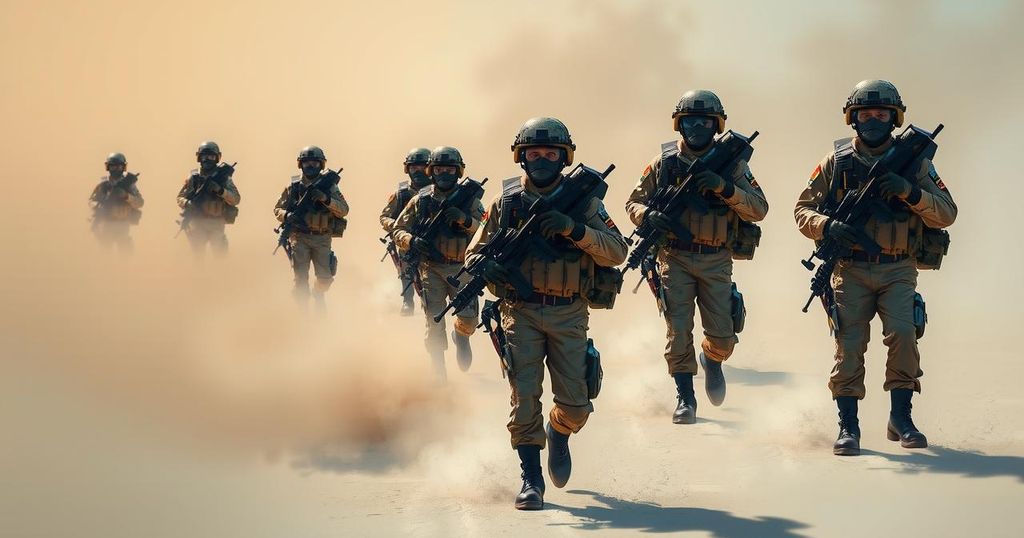Syria’s Resurgence of Civil War: Implications for the Middle East
The recent rebel offensive in Syria, marked by the capture of Aleppo, threatens the Assad regime and indicates a shift in regional power dynamics, exacerbating instability. The opposition’s recent gains occur amidst weakened support for Assad from Iran and Russia, prompting questions regarding the future of governance in Syria and eliciting responses from international stakeholders, including Turkey, Israel, and the United States.
The recent rebel offensive in Syria, particularly the seizure of Aleppo, has the potential to significantly alter the power dynamics in the region, challenging the Assad regime and threatening Iranian influence. Following years of relative stability, the opposition, aided by weakened support from Iran and Russia, has managed to reclaim significant ground, raising questions about the future of President Bashar al-Assad’s government. Reports suggest internal turmoil in Damascus, implying a possible shift in authority, while international stakeholders including Turkey, Iran, Israel, and the United States recalibrate their strategies in response to these developments.
The Syrian civil war, which has ravaged the country for over a decade, has experienced cycles of violence, and the recent developments indicate a resurgence of conflict. Aleppo, once divided between the government and rebels, was completely captured by Assad’s forces following intense foreign intervention. However, the landscape now sees the re-emergence of opposition forces, including extremist groups and those backed by Turkey, capitalizing on the current geopolitical vacuum. This phase of the conflict is marked by uncertainty regarding the Assad regime’s ability to respond effectively amidst ongoing regional strife.
Historically, Syria’s position has been a focal point of power for Iran, which has heavily invested in supporting the Assad regime to maintain its influence over Hezbollah and disrupt Israeli security. Meanwhile, Turkey is reconsidering its policy towards Syria, potentially preparing for greater involvement if the regime appears to fall. The implications of these shifts highlight a complex tapestry of alliances and enmities that have been reshaped against the backdrop of the civil war and external interventions, leading to significant geopolitical repercussions.
Russia’s involvement remains crucial yet strained due to its commitments in Ukraine, raising questions about its capacity to provide adequate military support for Assad. While airstrikes have been reported, the sustainability of such tactics in reversing battlefield losses appears tenuous. Furthermore, the divergent interests of international players, including Israel’s focus on countering Iran’s influence and the United States’ tactical concerns about the Islamic State, complicate the conflict landscape.
The evolving situation in Syria warrants a cautious approach to assessing future stability. The coalition of rebel groups, fragmented yet persistent, poses challenges not only to Syrian governance but also to regional security dynamics. Factors such as the fate of Assad, Iranian strategic interests, and the responses of other nations will ultimately dictate the trajectory of this enduring conflict.
The Syrian civil war, ignited in 2011, has evolved into a multi-faceted conflict involving numerous domestic and international actors. President Bashar al-Assad’s regime initially faced substantial opposition, leading to significant humanitarian and geopolitical crises. External interventions, particularly from Russia and Iran, have complicated the situation, with both nations striving to maintain Assad’s hold on power amid shifting allegiances and growing dissent from various rebel factions. Recent developments have heralded a resurgence of rebel activity, particularly in key urban areas like Aleppo, prompting renewed discussions on regional security and international foreign policy.
In summary, the resurgence of the Syrian rebels in Aleppo challenges the longstanding authority of President Bashar al-Assad and poses significant questions about the future geopolitical landscape in the Middle East. The weakened positions of Iranian and Russian support complicate their backing of the Assad regime, while Turkish, Israeli, and American positions evolve in line with the changing dynamics of the conflict. Ultimately, the coming months will determine not only the fate of Syria but also the broader implications for security and power in the region.
Original Source: www.pbs.org








Post Comment